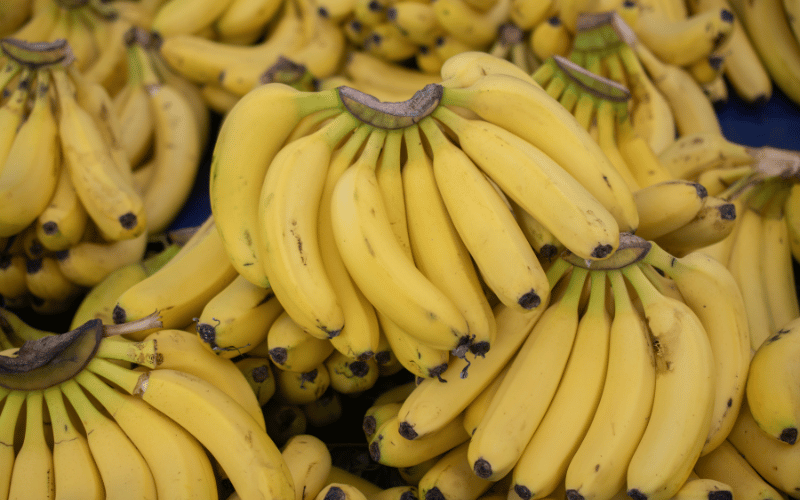Food 2: Bananas

The humble banana, with its yellow sheen and curvy structure, has more to offer than just a burst of instant energy. Bananas, regardless of their variety, are packed with a medley of nutrients and antioxidants. These antioxidants assist in neutralizing harmful radicals in our bodies, which can otherwise lead to inflammation and damage.
One might wonder how bananas can be beneficial for peptic ulcer disease. Well, for starters, bananas have an intrinsic ability to reduce stomach acidity. This becomes immensely beneficial for ulcer patients, as reduced acidity means fewer episodes of burning sensations and discomfort. These soothing properties can be attributed to the presence of pectin, a type of soluble fiber.
Pectin, when consumed, creates a protective layer within the stomach lining. This layer acts as a barrier against harsh stomach acids, ensuring that the sensitive mucosal lining isn’t directly exposed to these corrosive agents. This means that with every banana consumed, one is fortifying their internal defense against potential ulcer flare-ups.
Moreover, bananas also contain compounds known to stimulate the growth of stomach mucous, another protective mechanism. This mucous can aid in preventing the stomach lining from getting eroded by the acid. It’s no wonder then that bananas often feature in dietary recommendations for those battling acidity or gastric ulcers.(2)